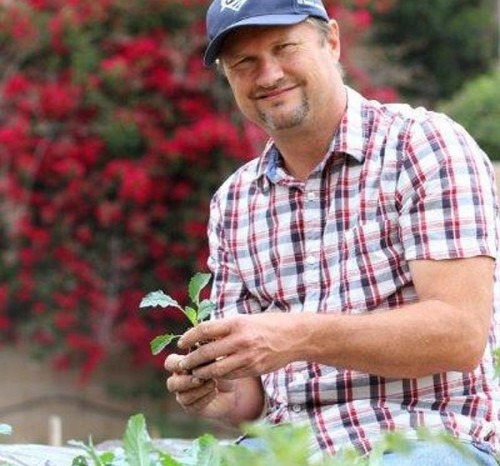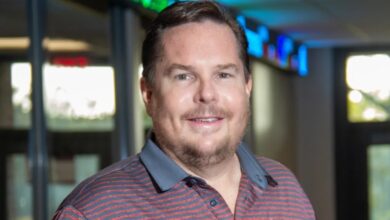Scott Berndt: Championing Local Food Systems and Community Health in Riverside

Scott Berndt is a notable figure in Riverside, California, dedicated to strengthening local food networks and enhancing community health through his work as Food Hub Coordinator at Riverside Unified School District (RUSD). With over eight years of experience in this role, Berndt has become a key driver behind efforts to connect local farmers with institutional buyers such as schools, restaurants, and childcare centers. His work supports regional agriculture and promotes access to fresh, nutritious food for thousands of residents in the Riverside area. This article delves into Scott Berndt’s impactful career, role in Riverside’s food ecosystem, and broader contributions to sustainable food distribution.
The Role of Food Hub Coordinator: Bridging Farmers and Communities
At the heart of Scott Berndt’s work is his role as Food Hub Coordinator at Riverside Unified School District, a position he has held since May 2017. In this capacity, Berndt operates a food hub—a centralized facility that coordinates the aggregation, storage, processing, distribution, and marketing of locally produced food. This hub is a critical link connecting Riverside’s local farmers with institutional buyers, including school cafeterias, restaurants, childcare centers, and other community organizations.
Berndt’s work is vital for several reasons. First, by facilitating direct connections between producers and buyers, he helps local farmers gain stable markets, reduce reliance on intermediaries, and improve profitability. Second, his coordination ensures that institutions receive fresh, locally sourced food, which benefits consumers through better nutrition and taste. Third, the food hub promotes sustainability by reducing food miles, supporting regional agriculture, and contributing to environmental conservation.
Berndt’s food hub operation involves complex logistics, including managing inventory, scheduling deliveries, handling compliance with food safety standards, and working closely with farmers to forecast supply and meet demand. Through these efforts, he helps maintain a resilient local food system that can respond to community needs while supporting the economic vitality of Riverside’s agricultural sector.
Impact on Riverside’s Food Landscape
Like many urban areas, Riverside, California, faces challenges related to food access, affordability, and nutrition. Many communities within the city are designated as food deserts or food swamps, where access to healthy, affordable food is limited. Scott Berndt’s work addresses these challenges head-on by improving the availability of fresh, locally grown produce to schools and other institutions that serve vulnerable populations.
By integrating local farmers into institutional supply chains, Berndt helps ensure that children in the Riverside Unified School District can access healthier meals featuring seasonal fruits and vegetables. This initiative aligns with broader farm-to-school programs nationally that aim to improve child nutrition, foster agricultural education, and support local economies.
Additionally, the food hub model under Berndt’s leadership helps stimulate the local economy by keeping food dollars within the region. Local farmers benefit from increased sales and long-term partnerships, while institutions benefit from fresh, high-quality products. This symbiotic relationship fosters a stronger community food system prioritizing economic and public health outcomes.
Leadership Beyond the Food Hub
Scott Berndt’s influence extends beyond his role at RUSD. He is also actively engaged in community leadership related to food justice and sustainability. His participation in local food cooperatives and alliances reflects his commitment to enhancing food sovereignty and equitable access to nutritious food in Riverside.
Through collaboration with organizations focused on food security, environmental stewardship, and local agriculture, Berndt advocates for policies and practices that support small-scale farmers and promote sustainable farming methods. His leadership helps build a network of stakeholders invested in a resilient, community-centered food system.
Moreover, Berndt’s longstanding experience as General Manager at Johnny Carino’s restaurant complements his expertise in food service operations and supply chain management. This dual experience in institutional food distribution and restaurant management equips him with a comprehensive understanding of the food industry’s challenges and opportunities at multiple levels.
Challenges and Opportunities in Local Food Systems
Operating a food hub and coordinating local food distribution present challenges that Scott Berndt navigates expertly. Supply chain complexities, fluctuating agricultural production due to weather and seasonality, regulatory compliance, and pricing pressures demand careful management.
Moreover, scaling local food systems to meet the needs of large institutions like school districts requires continuous relationship-building, education, and advocacy. Berndt’s role involves logistics and outreach to farmers, buyers, and policymakers to align interests and overcome barriers.
Despite these challenges, the opportunities are immense. Growing consumer demand for local, sustainable, and transparent food sourcing exists. Institutions increasingly recognize the value of integrating local foods into their procurement to meet health and sustainability goals. Berndt’s work positions Riverside to take full advantage of these trends by establishing enduring infrastructure and partnerships.
The Broader Significance of Food Hubs
Food hubs like the one managed by Scott Berndt are increasingly recognized as critical components of regional food systems across the United States. They serve as innovation hubs, connecting producers to new markets, reducing food waste, and strengthening community resilience.
Berndt’s leadership in Riverside illustrates how effective food hubs can simultaneously address multiple objectives: supporting local economies, improving public health, reducing environmental impact, and fostering social equity. By championing these goals in a dynamic urban context, he exemplifies the power of local leadership in transforming food systems.
Also Read: Anthony Riccio, Leading Operations and Innovation at Kushi Labs
Scott Berndt: A Catalyst for Change in Riverside’s Food Future
Scott Berndt’s dedication to coordinating the Riverside Unified School District’s food hub and his broader community involvement marks him as a vital figure in Riverside’s ongoing efforts to build a sustainable, equitable, and thriving local food system. His work ensures that local farmers have meaningful opportunities to succeed and institutions have access to fresh, nutritious foods for their populations.
As food systems evolve in response to environmental, economic, and social pressures, leaders like Berndt play a crucial role in fostering collaborative, innovative approaches that benefit communities. Riverside’s experience with its food hub demonstrates the tangible impact that committed coordination and vision can have on local agriculture and food access.
In summary, Scott Berndt’s career embodies the intersection of food advocacy, operational excellence, and community engagement—qualities essential for creating food systems that nourish people and places.



